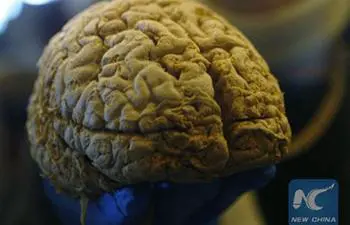Park Geun-hye of South Korea's ruling Saenuri Party waves to supporters in Seoul, on Dec. 19, 2012. Park Geun-hye won the tightly contested presidential election held Wednesday, becoming the first woman to lead the country and extending the conservative rule for another five years.
Park Geun-hye, daughter of late dictator Park Chung-hee, is set to become the first female president of South Korea after she won the tightly contested presidential election held Wednesday.
With 95.3 percent of the vote counted as of 1:08 a.m. local time Thursday, the 60-year-old political veteran won 51.7 percent of the votes, becoming the first candidate to garner more than half of all votes since democratic elections were introduced here in 1987.
The election was a showdown between Park and her archrival Moon Jae-in of the main opposition Democratic United Party, who was a close second with 47.9 percent, as there was no viable third candidate who could influence the close race.
Park, who likes to compare herself with former British prime minister Margaret Thatcher and German chancellor Angela Merkel, also became the first woman to represent what is still a largely patriarchal society.
While Park's supporters say her win is a victory for all South Korean women, skeptics voice doubt whether someone who never got married or had children can really relate to women's issues such as birth, childcare and gender equality.
Park, who acted as the de facto first lady to her late father after her mother was assassinated, will also be the first president to be related to a former head of state.
**Father's Legacy **
The disputed legacy of the senior Park, who took power in a 1961 coup and ruled the country until his assassination in 1979, was both a boon and an obstacle for his daughter.
The late dictator is credited with modernizing the domestic economy but is loathed for his ruthless suppression of dissent.
Still, he remains to be something of a myth for South Koreans nostalgic for the rapid economic growth under his watch, and residents of key southern cities gave his daughter overwhelming support once again.
The contest between Park and her archrival Moon Jae-in was seen by many as a historical assessment on the dictator.
Moon, a former human rights lawyer once jailed for protesting the senior Park's authoritarian rule, sought to make the election a judgment call on him and the unpopular incumbent Lee Myung-bak.
Such pressure prompted Park to repeatedly apologize for abuses under her father's reign, albeit reluctantly. At the same time, she successfully distanced herself from Lee, who had thwarted her previous presidential bid in the party primary five years ago.
**Despite victory, challenges ahead **
The victory of Park, often dubbed the "queen of elections", adds another entry on her impressive resume as a politician of 15 years.
Her presidency, experts say, will extend the rule of conservative Saenuri party for another five years, whose parliamentary majority has allowed it to railroad controversial bills in the recent past.
Park is also credited with reviving the scandal-ridden party once deemed hopeless, giving it an upset win in general elections earlier this year.
The surprise victory in the April parliamentary elections boosted presidential prospects for Park, who was brought back to the fore at the time to lead the beleaguered party's emergency council.
Still, one of the biggest challenges for Park down the road, analysts say, is to overcome the political divide between the left and the right.
Analysts say her win highlights the deep-rooted regional divide in South Korea's political landscape, as it confirmed the traditional voting trends in both the conservative and liberal strongholds.
The election was also rife with so-called negative campaigning. In one of the pettiest moments of partisan bickering, conservatives seized on an expensive chair featured in Moon's television ad, accusing him of posing as a candidate for the ordinary people.
Liberals and leftists, on the other hand, questioned if she had used what they suspected to be an iPad in a televised debate and doggedly attacked her for her reluctance to admit to past wrongdoings by her father.
Park has nonetheless vowed to achieve national unity and overcome partisan wrangling.
She is set to replace Lee, who is constitutionally barred from running for re-election, in February, 2013.
 简体中文
简体中文

